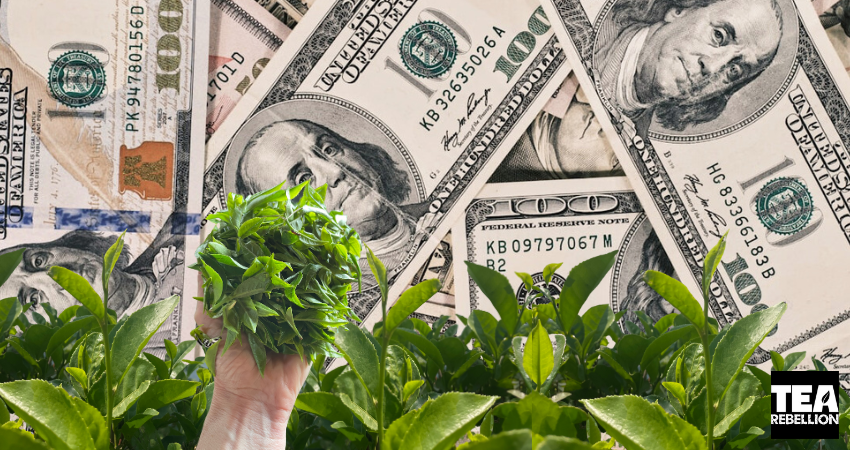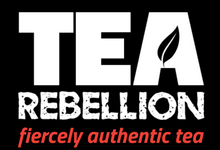
Certifications vs. Alternatives: The Burden on Tea Farmers
In agriculture, the debate between certifications and alternative farming practices has been a constant one over the past 30 years. Why delve into this today? Certifications and compliance costs are increasing at the same time as our societal dependency on agriculture have increased dramatically given our dual climate and biodiversity crisis. In this blog post we outline how the cost of certifications is impacting tea farmers and explore alternatives for people and planet.
Certifications in Farming
These are the most common Certifications Available to Farmers:
- Organic Farming Certification (as well as Regenerative Organic Certification ROC)
- Sustainable Agriculture Certification
- Fair Trade Certification (several different logos)
- Global Good Agricultural Practices (GlobalG.A.P.) Certification
- Rainforest Alliance Certification (now includes UTZ)
Benefits of Obtaining Certifications:
- Credibility and Trust: Certifications enhance the credibility of farmers and their products in the market.
- Access to Markets: Certified farmers often gain access to premium markets that value certified products
- Environmental Stewardship: Certifications promote sustainable farming practices that benefit the environment.
- Financial Incentives: Some certifications offer financial incentives or subsidies to certified farmers.
- Knowledge and Skills Enhancement: Certification programs provide farmers with valuable knowledge and skills to improve their farming practices.
The Case for ACertifications
The transition to being granted "certified" status is usually a journey for farmers where once they decide they want to certify their production they may benefit from a support program. In organic production this period or journey would take at least 3 years - the transition period- to ensure the land is free from all agrochemicals.
The positive case is that certifications not only benefit individual farmers as well as the customer with healthier product but also have a positive impact on the agricultural industry as a whole. By encouraging sustainable practices and ensuring product quality, certifications contribute to a more transparent and ethical food supply chain. Consumers feel reassured by seeing logos of certifications on their products, driving the demand for certified produce and encouraging more farmers to adopt certification standards.
Where they work, certifications can play a crucial role in promoting responsible farming practices, supporting farmer livelihoods, and meeting the growing demand for sustainable and ethically produced food. Farmers who invest in certifications not only improve their own operations but may also work with the communities around them on a more sustainable and environmentally friendly agricultural sector.
So what is the problem then?
Challenges Faced by Farmers
Farmers face a myriad of challenges in today's agricultural landscape, rising costs and lower return. A key cost of these rising costs is to cost of obtaining several certifications, each associated with its own audit and compliance process. This is particularly topical for smaller producers impacted by EUDR and CSRD.
The financial burden of certifications adds to the challenges faced by farmers. Meeting the various standards and regulations often necessitates substantial investments in obtaining certifications, which can be particularly daunting for small-scale farmers operating on limited budgets. The high costs associated with certifications further strain the financial stability of farmers, hindering their ability to thrive in a competitive market.
Additionally, stress factors and turmoil in farming exacerbate the challenges experienced by farmers. The inherent unpredictability of agriculture, coupled with weather-related disasters, market fluctuations, and other external pressures, contribute to the immense stress faced by farmers on a daily basis. This chronic stress not only affects their mental health but also impacts their overall well-being and productivity.
Furthermore, the lack of technological advancements in some farming communities poses a significant hurdle. Access to modern farming equipment, irrigation systems, and sustainable farming practices is limited in certain regions, hindering farmers' efficiency and productivity. Bridging this technological gap through educational programs and government support can enhance the overall agricultural output and economic stability of farming communities.
Another pressing issue is the impact of climate change on agriculture. Extreme weather events, shifting growing seasons, and unpredictable rainfall patterns are disrupting traditional farming practices and threatening crop yields. Farmers are forced to adapt to these changing conditions, often requiring costly investments in resilient farming techniques and infrastructure. Sustainable farming methods, such as agroforestry and water conservation practices, are becoming increasingly crucial in mitigating the effects of climate change on agriculture.
The challenges faced by farmers are diverse and complex, requiring a holistic approach that addresses issues ranging from misinformation and financial burdens to technological limitations and climate change. By fostering a supportive environment that empowers farmers with knowledge, resources, and sustainable practices, we can work towards a more resilient and prosperous agricultural sector. Our concern is that certifications are way to narrow to address the full magnitude of the challenges and opportunities farmers have in front of them.
Tea Rebellion's experience with organic certifications in tea
The tea industry is in many ways particular. Tea is a perennial (growing continuously over many years) and in many remote and hilly areas tea is farmed entirely agrochemical free. For example, the tea farms we visited in the Himalyan foodhills in Ilam (for example on our trip to Nepal in April 2024 ) production is already organic. Some farms had just renewed their certifications (with outside financial support). Many other farms who were holding certificates of agricultural production from a few years ago, were trying to get newly certified but had trouble getting auditors out to their remote locations. This is a common problem for marketing cooperative with many members each with a small, individual piece of land. The requirement here is for an auditor to visit every field. The financial and logistical burden is huge.
As a brand, Tea Rebellion has been organic certified since 2018. Annually we have gone through the certification process and explained which of our farms is organic certified vs only farming organically /naturally without holding certification standard. In addition to our existing organic certified farms, two additional farms from Kenya and Malawi, are now in "transition" to certification.
What has changed in the case for conversion to organic practices? The stakes are higher. There is a huge opportunity to shift production away from inorganic fertiliser to decarbonise and to focus tea farmers attention on insetting carbon opportunities and creating nature co benefits on their farms. Yet the reality is that certifications are tying up so much capacity around compliance and renewal that the positive opportunities of additional innovative practices and moving the needle even further "beyond organic" are often overlooked.
Exploring Alternative Certifications in Agriculture
The exploration of alternatives to traditional certifications has become a pivotal aspect of ensuring the sustainability and quality of farming practices. While traditional certifications like organic farming have long been established, newer alternative certifications offer a fresh perspective on how we can approach agricultural sustainability and planet impact.
Nuances of Alternative Certifications
When delving into the realm of alternative certifications, it is crucial to consider the various nuances that set them apart from conventional organic certifications. While organic certifications primarily focus on the exclusion of synthetic inputs and adherence to specific farming methods, alternative certifications encompass a broader spectrum of practices. These may include regenerative farming techniques that aim to restore soil health and biodiversity, or certifications that prioritize fair trade practices to ensure equitable treatment of farmers and workers along the supply chain. Regenerative Agricultural Alliance has to their benefit included some of these additional aspects in its new requirements - this is great news.
Promoting Transparency in Local Farming
In the context of promoting transparency in local farming, the benefits extend beyond consumer trust. Transparent farming practices enable consumers to make informed choices about the food they consume, fostering a deeper connection between producers and consumers. By openly sharing information about farming methods, sourcing practices, and environmental impact, local farmers empower consumers to support sustainable agriculture and make conscious purchasing decisions that align with their values.
Working with Farmers on regenerative tea practices
We see the role of Tea Rebellion around finding opportunities for funding and documenting regenerative tea farming practices rather than chasing certifications. In our Earth Day Blog we shared our priorities around developing and iterating regenerative tea standards with our partners in the industry.
We have long been sceptical of the actual sustainability impact of a push for more and more certifications in the tea industry and have outlined our thoughts in one of our first blogs on this topic in 2018. With a tightening of standards (i.e new requirements in the USA with NOPIC and EURD and CSRD) certification regimes tend to be focused on minimising the negative impact of misuse rather than maximising benefits and creating opportunities for farmers, consumers and our planet. We believe that transparency, education, trust and targeted collaborations are needed to work with farmers to drive positive impact for them and our planet and climate through regenerative tea farming.
Conclusion
As the global demand for ethically sourced and environmentally sustainable products continues to rise, the significance of alternative certifications and transparent local farming practices cannot be overstated. Embracing these alternatives not only propels the agricultural industry towards a more sustainable future but also cultivates a sense of responsibility and stewardship that we need.
In the realm of agriculture, a weighty decision is placed on our farmers, forcing them to navigate between traditional certification systems and emerging alternatives. The implications of this choice extend beyond individual farms, influencing environmental sustainability, market dynamics, and consumer preferences.

1 comment
This insightful blog sheds light on the complexities faced by farmers due to certification demands. It’s refreshing to see alternatives explored to ease their burden. Great work!